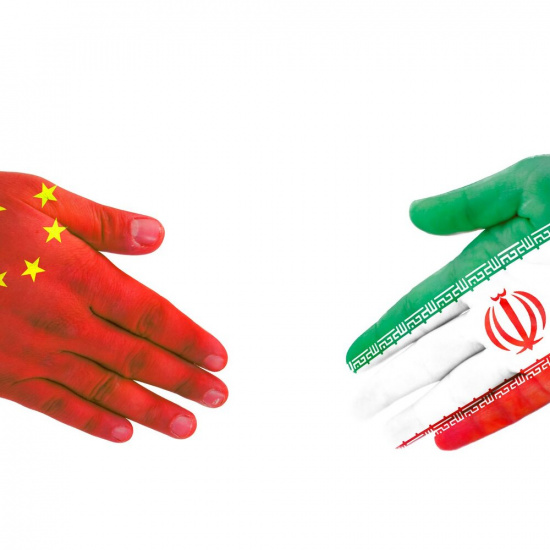Mutual interests entail Iran, China to quickly finalize their strategic cooperation document

The 25-year Iran-China comprehensive cooperation plan is not finalized yet. However, it was exposed to extensive discussion inside and outside Iran. The cabinet of Hassan Rouhani approved the draft of the plan on June 21 and tasked Foreign Minister Mohammad Javad Zarif with negotiating with China over the plan in order to finalize it. Three days later, the foreign minister held talks by phone with his Chinese counterpart Wang Yi.
During the talks, Iran’s chief diplomat expressed hope that 25-year cooperation would be signed soon.
“Foreign Minister Zarif then highlighted the strategic comprehensive relations between the two countries, expressing hope that the document on comprehensive cooperation would be soon signed by the two sides,” Iranian Foreign Ministry said in a statement.
Writing on his Twitter page in Chinese, Zarif also said, “On the eve of the Dragon Boat Festival in China, I am very pleased to hold a video conference meeting with Wang Yi, State Councilor and foreign minister of China. We agreed on deepening the comprehensive strategic partnership between the two countries, promoting the 25-year bilateral cooperation plan, and strengthening mutual support in international affairs. We reaffirmed our support for the Iranian nuclear agreement, multilateralism and international law, and jointly expressed our objection to the unilateralism and the weakening of the Iranian nuclear agreement.”
For its part, Iran has approved the draft of the partnership plan, which is officially known as “Comprehensive Cooperation Plan between the People's Republic of China and the Islamic Republic of Iran,” but China has yet to approve the draft. Analysts believe that China may need more time to study the plan thoroughly.
“The Chinese conduct a lot of studies before doing things, though their studies are not always accurate. Moreover, international agreements need to be hammered out in accordance with the parties’ needs and these agreements usually take a longer time,” Hossein Mala’ek, Iran’s former ambassador to China, told the Tehran Times, adding that it takes a lot of time to hammer out the details of international agreements as they needs to be drafted meticulously.
However, some analysts believe that Iran and China need each other in various sectors and that expediting the expansion of ties between them will serve their national interests.
“I think Iran and China should have signed the 25-year agreement six years ago,” the Fars news agency quoted Mehdi Safari, Iran’s former ambassador to China, as saying in an interview with Radio Eghtesad.
According to Safari, China greatly needs energy supply from the region and thus it needs Iran as a major player in providing energy security as well as securing energy lanes in the Persian Gulf and Sea of Oman.
“Energy security in the Persian Gulf and Sea of Oman is provided by Iran because 1,200 kilometers of the Persian Gulf and Sea of Oman’s coasts belong to Iran,” Said Safari, adding that six years ago, during a meeting with his Iranian counterpart, Chinese President Xi Jinping said that Iran and China have a strategic ties, and energy is a part of this ties.
The former diplomat also said that China needs security in the region to expand its trade activities in the world, therefore Iran can be a strong partner for China by providing security in the region.
“Iran can provide both energy and security for China,” noted Safari.
“In final stages”
On other hand, Iran also needs China to solve its economic challenges and achieve economic development, Mala’ek told the Tehran Times, referring to the current economic problems facing Iran, which have been mainly caused by illegal U.S. sanctions.
The U.S. has imposed sweeping economic sanctions on Iran after it withdrew from the Iran nuclear deal, officially known as the Joint Comprehensive Plan of Action, on May 8, 2018. As the sanctions gradually came into effect, the foreign firms operating in Iran, in particular the European ones, left Iran in droves, in a bid to avoid possible American fines for violating the sanctions.
Unlike the European firms, the Chinese small and medium-sized firms can return to the Iranian market, if they are supported by the Chinese government, Hossein Pirmoazzen, a member of Iran-China Chamber of Commerce, told the Tehran Times.
“Many Chinese firms are under U.S. sanctions, and Iran is not a small market. Moreover, many Chinese small and medium-sized firms can’t do business in the U.S. These firms can do business and make investments in Iran if they are supported by the Chinese Government,” said Pirmoazzen, who is also the head of the Chamber of Commerce of the northwestern province of Ardebil.
Calling Iran and China “Silk Road ancient allies”, he also said China, along with other countries like India, managed to purchase Iranian oil. According to Pirmoazzen, China still buys Iranian oil, despite the U.S. sanction.
Oil and gas development projects are main part of the partnership plan that, if finalized, could see China investing billions of dollars in Iran’s oil and gas sector. Iran also plans to become the one of the biggest energy exporters to China in the near future.
But the plan is not finalized yet. Some analysts believe that it could be in the final stages.
“This document is very likely to be in the final stages,” Radio Eghtesad quoted Amir Azizi, an Iranian economist and University professor, as saying on Wednesday.
Iranian and Chinese officials have not set a date for signing the partnership plan, but it seems that they are busy hammering out the details of the plan, which could mark a major shift in Iran’s foreign relations towards what came to be known as “the intellectual East” as opposed to the West.
Source: Tehran Times

